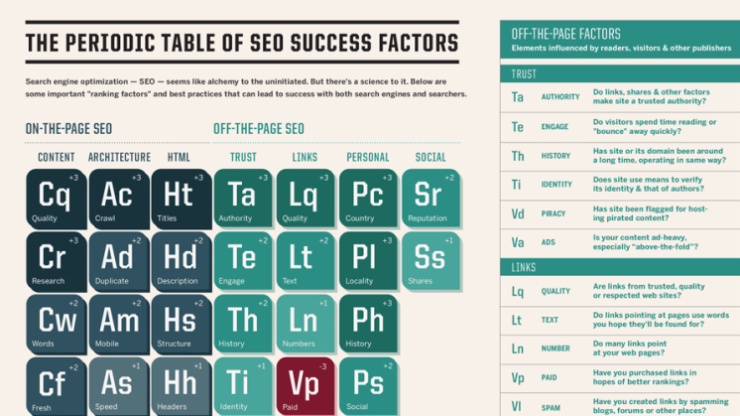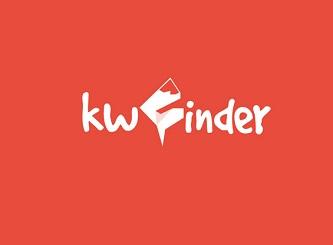Search engine optimization (SEO) is really a never-ending turf war. Every business, no matter the size or industry, has a website that usually includes webpages listing the key products and services it’s trying to sell. Most also have other pages devoted to targeted content the organization needs surfaced more prominently in Google’s search results than its competitors. That’s what the “optimization” part of SEO is looking to accomplish, and it’s a nitty-gritty game of keyword and research-driven leapfrog, made significantly more complicated by Google changing all the rules every few months. That’s where SEO tools come in.
The emphasis on tools, meaning plural, is important. There’s no one magical way to plop your website atop every single search results page, at least not organically. If you want to buy a paid search ad spot, Google AdWords will happily take your money. But to win for the more valuable and customer-trusted organic search spots, a balanced and comprehensive SEO strategy is a must-have. This can be broken down into three primary categories: ad hoc keyword research, ongoing search position monitoring, and crawling. In this roundup, we’ll explain what each of those categories means for your business, the types of platforms and tools you can use to cover all of your SEO bases, and what to look for when investing in those tools.
Breaking Down the SEO Tool Landscape
The first wave of our roundup covers five top, self-service SEO tools: Ahrefs, KWFinder.com, Moz Pro, SEMrush, and SpyFu. The primary function of these tools falls primarily under keyword-focused SEO. When deciding what search topics to target and how best to focus your SEO efforts, treating keyword querying like an investigative tool is where you’ll likely get the best results.
These cloud-based, self-service tools have plenty of other unique optimization features as well. Some also do search position monitoring while others have more interactive data visualizations or crawling capabilities. The more powerful platforms can sport deeper analytics on paid advertising and pay-per-click (PPC) SEO as well. Though, at their core, the tools are all rooted in their ability to perform on-demand keyword queries.
We concentrated on the keyword-based aspect of these SEO tools because that’s where most business users will primarily focus. Monitoring particular keywords and your existing URL positions in search rankings is important, but once you’ve set that up it’s largely an automated process. Automated position-monitoring features are a given in most SEO platforms and will alert you to issues, but they don’t actively improve your search position. When your business has an idea about a new search topic for which you think your content has the potential to rank highly, the ability to spin up a query and investigate right away is key. Even more importantly, the tool should give you enough data points, guidance, and recommendations to confirm whether that particular keyword, or a related keyword or search phrase, is an SEO battle worth fighting, and, if so, how to win. We’ll get into the factors and metrics to help you make those decisions a little further down.
Click infographic for full view. Copyright: Third Door Media. Written by Search Engine Land, Design by Column Five
Crawlers are largely a separate product category. There is some overlap with the self-service keyword tools (Ahrefs, for instance, does both), but crawling is another important piece of the puzzle we’ll explore in greater depth with the second wave of reviews in this roundup.
There are two types of crawling, both of which provide useful data. Internet-wide crawlers are for large-scale link indexing. It’s a complicated and often expensive process but, as with social listening, the goal is ultimately for SEO experts, business analysts, and entrepreneurs to map how websites link to one another and extrapolate larger SEO trends and growth opportunities. Crawling tools generally do this with automated bots continuously scanning the web. As is the case with most of these SEO tools, many businesses use internal reporting features in tandem with integrated business intelligence (BI) tools to identify even deeper data insights.
Website-specific crawlers, or software that crawls one particular website at a time, are great for analyzing your own website’s SEO strengths and weaknesses and arguably even more useful for scoping out the competition. Website crawlers analyze a website’s URL, link structure, images, CSS scripting, and associated apps and third-party services to evaluate SEO. Not unlike how a website monitoring tool scans for a webpage’s overall “health,” website crawlers can identify factors such as broken links and errors, website lag, and content or metadata with low keyword density and SEO value while mapping a website’s architecture. Website crawlers can help your business improve website user experience (UX) while identifying key areas of improvement to help pages rank better.
The last piece of the complicated SEO tool ecosystem is the enterprise tier. This roundup is geared toward SEO at the small to midsize businesses (SMBs) level for which these platforms are likely priced out of reach. But the handful of enterprise SEO software providers out there essentially roll all of the self-service tools into one comprehensive platform that combines ongoing position monitoring, deep keyword research, and crawling with customizable reports and analytics. The enterprise platforms can also tie in larger content marketing campaigns and return-on-investment (ROI) metrics for integrated digital marketing teams. We may look at enterprise-tier SEO platforms in future reviews but, for SMBs, a smart combination of self-service tools is the much better bang for your SEO buck.
Running the Numbers
Evaluating which self-service SEO tools are best suited to your business incorporates a number of factors, features, and SEO metrics. Ultimately, though, when we talk about “optimizing,” it all comes down to how easy the tool makes it to get, understand, and take action on the SEO data you need. Particularly when it comes to ad hoc keyword investigation, it’s about the ease with which you can zero in on the ground where you can make the most progress. In business terms, that means making sure you’re targeting the most opportune and effective keywords available in your industry or space—the words for which your customers are searching.
The terms SEO experts often start with are page authority (PA) and domain authority (DA). DA, a concept in fact coined by Moz, is a 100-point scale that predicts how well a website will rank on search engines. PA is the modern umbrella term for what started as Google’s original PageRank algorithm, developed by co-founders Larry Page and Sergey Brin. Google still uses PageRank internally but has gradually stopped supporting the increasingly irrelevant metric, which it now rarely updates. PA is the custom metric each SEO vendor now calculates independently to gauge and rate (again, on a scale of 100) the link structure and authoritative strength of an individual page on any given domain.
That’s why PA and DA metrics often vary from tool to tool. Each ad hoc keyword tool we tested came up with slightly different numbers based on what they’re pulling from Google and other sources, and how they’re doing the calculating. The shortcoming of PA and DA is that, even though they give you a sense of how authoritative a page might be in the eyes of Google, they don’t tell you how easy or difficult it will be to position it for a particular keyword. This difficulty is why a third, newer metric is beginning to emerge among the self-service SEO players: difficulty scores.
Difficulty scores are the SEO market’s answer to the patchwork state of all the data out there. All five tools we tested stood out because they do offer some version of a difficulty metric,or one holistic 1-100 score of how difficult it would be for your page to rank organically (without paying Google) on a particular keyword. Difficulty scores are inherently subjective and each tool calculates it uniquely. In general, it incorporates PA, DA, and other factors, including search volume on the keyword, how heavily paid search ads are influencing the results, and how the strong the competition is in each spot on the current search results page.
It’s exceedingly easy as an SEO team to spin your wheels trying to optimize a term into which your business will never be able to break. Difficulty scores quantify that potential opportunity versus risk proposition into one number, which is why we spent a lot of time in this roundup testing how effectively each tool represented keyword difficulty.
For example, let’s say the keyword difficulty of a particular term is in the 80s and 90s in the top five spots on a particular search results page. Then, in positions 6-9, the difficulty scores drop down into the 50s and 60s. Using that difficulty score, a business can begin targeting that range of spots and running competitive analysis on the pages to see who your website could knock out of their spot.
It All Comes Back to Google
The caveat in all of this is that, in one way or another, most of the data and the rules governing what ranks and what doesn’t (often on a week-to-week basis) comes from Google. If you know where to find and how to use the free and freemium tools Google provides under the surface—AdWords, Google Analytics, and Google Search Console (formerly Webmaster Tools) being the big three— you can do all of this manually. Much of the data the ongoing position monitoring, keyword research, and crawler tools provide is extracted in one form or another from Google itself. Doing it yourself is a disjointed, meticulous process, but you can piece together all the SEO data you need to come up with an optimization strategy should you be so inclined.
As Google tweaks its algorithms, tools, and search engine policies, so goes the SEO industry. The AdWords API is still the foundation of much of the data with which SEO tools work. Google used to make much of its ad-hoc keyword search functionality available as well, but now the Keyword Planner is behind a pay-wall in AdWords as a premium feature. Difficulty scores are inspired by the way Google calculates its Competition Score metric in AdWords, though most vendors calculate difficulty using PA and DA numbers correlated with search engine positions, without AdWords data blended in at all. Search Volume is a different matter, and is almost always directly lifted from AdWords. Not to mention keyword suggestions and related keywords data, which in many tools come from Google’s Suggest API. Platforms also made use of the unofficial Autocomplete API before Google shut it down last year.
An SEO expert could probably use a combination of AdWords for the initial data, Google Search Console for website monitoring, and Google Analytics for internal website data. Then transform and analyze it using all a BI tool. The problem for most business users is that’s simply not an effective use of time and resources. These tools exist to take the manual data gathering and granular, piecemeal detective work out of SEO. It’s about making a process that’s core to modern business success more easily accessible to someone who isn’t an SEO consultant or expert.
Where the free Google tools can provide complementary value is in fact-checking. If you’re checking out more than one of these SEO tools, you’ll quickly realize this isn’t an exact science. If you were to look at the PA, DA, and keyword difficulty scores across KWFinder, Moz, SpyFu, SEMrush, and Ahrefs for the same set of keywords, you might get different numbers across each metric separated by anywhere from a few points to dozens. If your business is unsure about an optimization campaign on a particular keyword, you can cross-check with data straight from a free AdWords account and Search Console. Another trick: enable Incognito mode in your browser along with an extension like the free Moz Toolbar and you can run case-by-case searches on specific keywords to get an organic look at your target search results page.
The SEO tools in this roundup provide tremendous digital marketing value for businesses, but it’s important not to forget that we’re living in Google’s world under Google’s constantly evolving rules. Oh and don’t forget to check the tracking data on Bing now and again, either. Google’s the king, but the latest ComScore numbers have Bing market share sitting at 22.1 percent.
How To Choose Your SEO Tool Suite
When it comes to finally choosing the SEO tools that suit your organization’s needs, the decision comes back to that concept of gaining tangible ground. It’s about discerning which tools provide the most effective combination of keyword-driven SEO investigation capabilities, and then on top of that the added keyword organization, analysis, recommendations, and other useful functionality to take action on the SEO insights you uncover. If a product is telling you what optimizations need to be made to your website, does it then provide technology to help you make those improvements?
The self-service SEO tools we tested all handle pricing relatively similarly, pricing by month with discounts for annual billing with most SMB-focused plans ranging in the $50-$200 per month range. Depending on how your business plans to use the tools, the way particular products delineate pricing might make more sense. KWFinder.com is the cheapest of the bunch but it’s focused squarely on ad-hoc keyword and Google search results page (SERP) queries, which is why the product sets quotas for keyword lookups per 24 hours at different tiers. Moz and Ahrefs price by campaigns or projects, meaning the number of websites you’re tracking in the dashboard. Most of the tools also cap the number of keyword reports you can run per day. SpyFu prices a bit differently, providing unlimited data access and results but capping the number of sales leads and domain contacts.
For the purposes of our testing, we standardized keyword queries across the five tools. To test the primary ad-hoc keyword search capability with each tool, we ran queries on an identical set of keywords. From there we tested not only the kinds of data and metrics the tool gave, but how it handled keyword management and organization, and what kind of optimization recommendations and suggestions the tool provided.
Enterprise SEO platforms put all of this together—high-volume keyword monitoring with premium features like landing page alignments and optimization recommendations, plus on-demand crawling and ongoing position monitoring—but they’re priced by custom quote. While the top-tier platforms give you features like in-depth keyword expansion and list management, and bells and whistles like SEO recommendations in the form of automated to-do lists, SMBs can’t afford to drop thousands of dollars per month.
The tools we tested in this round of reviews were judged on which do the best job of giving you the research-driven investigation tools to identify SEO opportunities ripe for growth, along with offering enterprise-grade functionality at a reasonable price. Whether one of these optimization tools is an ideal fit for your business, or you end up combining more than one for a potent SEO tool suite, this roundup will help you decide what makes the most sense for you. There’s a wealth of data out there to give your business an edge and boost pages higher and higher in key search results. Make sure you’ve got the right SEO tools in place to seize the opportunities.

Moz Pro![]()
$79.00
%displayPrice% at %seller%
Moz Pro runs the gamut of SEO tools across position monitoring, keyword research, crawling, and everything in between. As the company better integrates all of these products, this Editors’ Choice SEO platform will only improve. Read the full review ››
SpyFu![]()
$49.00
%displayPrice% at %seller%
SpyFu is a well-designed SEO tool packed with metrics and features specifically geared toward sales, online marketing, and digital advertising. For all those categories of SMB users, it’s the no-brainer Editors’ Choice. Read the full review ››
Article source: http://www.pcmag.com/roundup/348615/the-best-seo-tools








